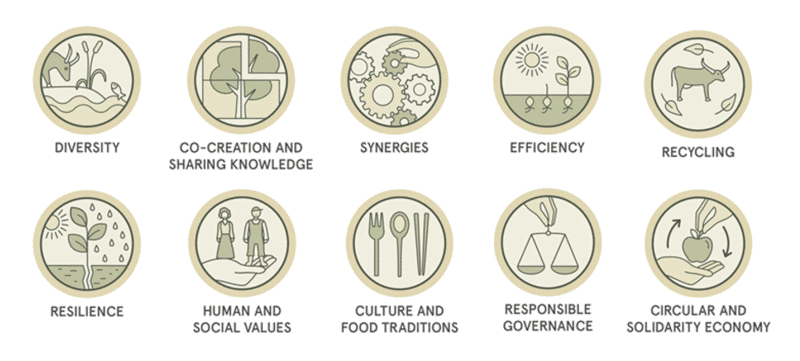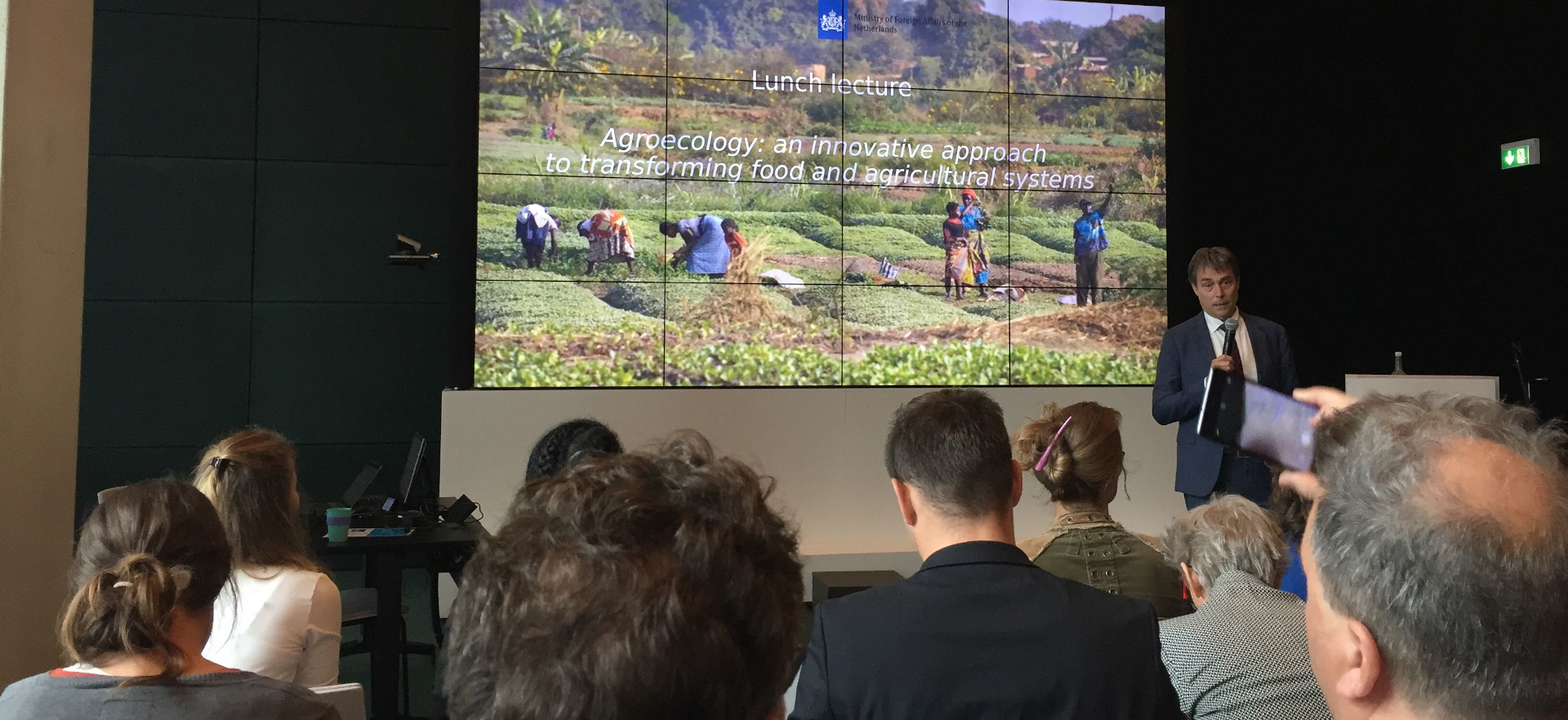Last September, the Fair, Green and Global (FGG) Alliance, the Ministry of Foreign Affairs and the Ministry of Agriculture co-organized a lunch lecture on agroecology. Agroecology touches on a wide range of aspects that are central to FGG's mission by providing an integral approach of social justice and environmental sustainability. At this lunch lecture prof. dr. Pablo Tittonell (INTA, RUG) presented a wealth of scientific proof that underpins the power of agroecology.
World Food Day 2019
October 16th 2019 is World Food Day. Agroecology carries the message to do the right things at the right time. Although the road towards mainstream adoption of agroecology isn't an easy one, agroecology does provide answers to today's agricultural challenges both in the Netherlands and across the globe. A good time to reflect on the lunch lecture.
The video below was screened at the lunch lecture and offers a brief but powerful introduction to agroecology.
Integral approach: 10 elements of Agroecology
Yodit Kebede (FAO) kicked off the session with an elaboration on the 10 elements of agroecology as defined by the FAO. Kebede stated that FAO has identified agroecology to contribute directly to multiple Sustainable Development Goals (in particular SDG 1, 2, 4, 6, 8, 12, 13 and 15) and that it is therefore important that agroecology is mainstreamed into agricultural public policies, legal frameworks and regulations.

Source: http://www.fao.org/agroecology/knowledge/10-elements/en/
Social movement building
Jolke de Moel (Dutch Federation of Agroecological Farmers) followed by reminding us that agroecology is happening already in many parts of the world (including the Netherlands), resembling a social just and environmentally friendly way of farming. The agroecology movement is able to provide social innovation, social movement building and knowledge sharing that gives people the space, tools and support to create their own answers. According to Moel it is therefore important that “people talk with us, not about us”
Tittonell: Need to scale up agroecology
Tittonell closed the session with an inspiring lecture, in which he stated that whilst it is necessary to produce more food for a growing world population, this should not happen at any cost. Instead, we need to scale up agroecology, which can provide the right tools to even triple yields in those countries where yields are still relatively low, whilst at relatively low, whilst at the same time enhancing biodiversity and both climate change mitigation and adaptation measures. This does not only the same time enhancing biodiversity and both climate change mitigation and adaptation measures. This does not only require more research on field and landscape level, but also mainstreaming of agroecology in agricultural policies and frameworks.
Other reads and sources:
- The Guardian - Can agroecology feed the world and save the planet?
- Both ENDS Unlocking Public Finance or Agroecology
- ActionAid on agroecology
- Friends of the Earth International - Agroecology innovation
- TNI Long Reads - A living Countryside
Expanding Civic Space
As stated before, agroecology is about systems change and demands a holistic inclusive approach in respect to the mentioned 10 elements and the connection with at least eight of the SDGs. All actors in the scene should be having a place at the table. The process is both top down and bottom up. Expanding civic space for this matter is of crucial importance.
Recommended read

5 Ways to expanding civic space
A thriving and open civic space is a necessity for civil society actors to exercise their rights, access information, voice their views, organise, engage in and, most importantly, meaningfully influence their world.














